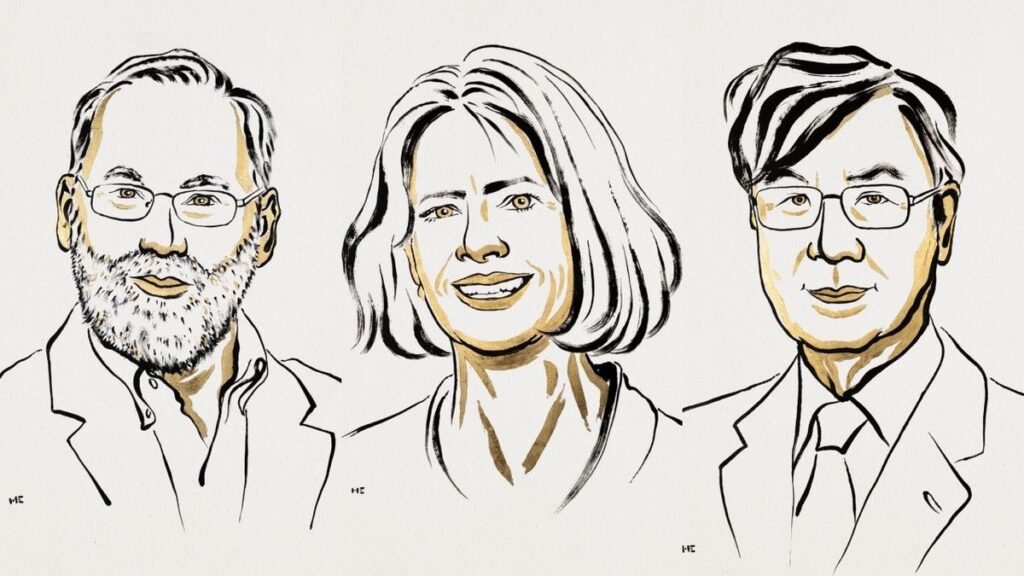Mary E. Brunkow, Fred Ramsdell, and Shimon Sakaguchi win the 2025 Nobel Prize in Physiology or Medicine for discovering regulatory T cells, the immune system’s key defenders against autoimmune diseases.
The Nobel Prize in Physiology or Medicine this year has been awarded to Mary E. Brunkow, Fred Ramsdell, and Shimon Sakaguchi for their groundbreaking discoveries on peripheral immune tolerance, a mechanism that prevents the immune system from attacking the body’s own cells.
Also Read:Bengaluru teacher duped of ₹2.3 crore by ‘US Engineer’ she met on matrimonial site
The Royal Swedish Academy of Sciences hailed their research as a revolutionary milestone in immunology, recognizing their identification of regulatory T cells, often called the “security guards” of the immune system. These cells ensure the body’s defenses do not turn against themselves, a failure that leads to autoimmune diseases such as Type 1 diabetes and multiple sclerosis.
/filters:format(webp)/newsfirstprime/media/media_files/2025/10/06/2-2_3-scaled-2025-10-06-16-29-24.jpg)
/filters:format(webp)/newsfirstprime/media/media_files/2025/10/06/3-2_3-scaled-2025-10-06-16-30-07.jpg)
In 1995, Shimon Sakaguchi discovered a previously unknown class of immune cells responsible for protecting the body from self-inflicted immune attacks, a challenge to the then-dominant theory of “central tolerance.” Later, in 2011, Mary Brunkow and Fred Ramsdell discovered that a gene called Foxp3 plays a crucial role in this tolerance. They demonstrated that mutations in Foxp3 lead to severe autoimmune disorders, including IPEX syndrome.
Two years later, Sakaguchi connected these discoveries, proving that Foxp3 controls the development of regulatory T cells, thus linking gene function to immune tolerance.
Also Read:Netanyahu dominates Trump for Nobel Peace Prize During White House visit
Mary E. Brunkow, now a Senior Program Manager at the Institute for Systems Biology in Seattle, shares the honor with Fred Ramsdell, Scientific Advisor at Sonoma Biotherapeutics, and Shimon Sakaguchi, Distinguished Professor at Osaka University, Japan.
The laureates will receive their awards on December 10, along with a cash prize of 11 million Swedish kronor (about $1.2 million). The Medicine Prize opens Nobel Week, followed by Physics (October 7), Chemistry (October 8), Literature (October 9), Peace (October 10), and Economics (October 13).

